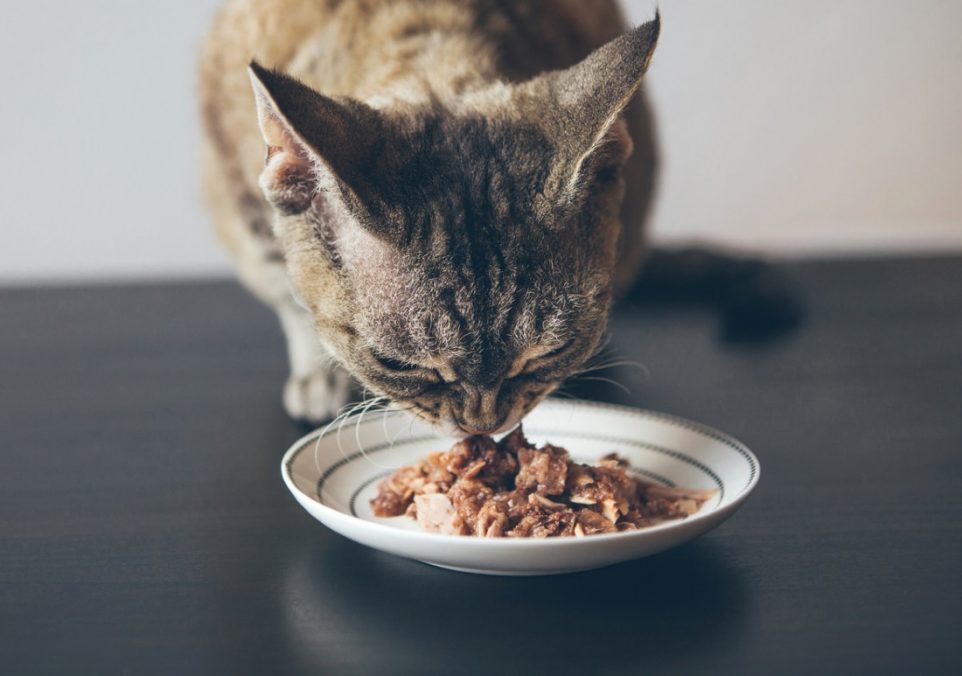10 Food Cats Can Eat (And 5 Foods They Can’t)

Cats are not just pets; they are cherished members of our families. It’s no surprise that we want to share our food and treats with them, especially when they look at us with big round eyes and beg. While their meals may come from automatic cat feeders or scooped by you during meal time, there are some human foods you can give them as treats. It’s vital, however, to be aware of what’s safe and what’s not. In this comprehensive guide, we’ll explore a list of 10 human foods that are generally safe for cats to eat. We will also go over five foods that should be strictly avoided.
Safe Foods for Cats
Cooked Chicken or Turkey
Plain, boneless, skinless chicken or turkey is a protein-rich treat that many cats enjoy. Ensure it’s thoroughly cooked and free of seasoning. The lean protein in these meats can be a nutritious addition to their diet.
Salmon
Cooked salmon provides essential omega-3 fatty acids that can benefit your cat’s skin and coat. However, too much fish can lead to nutrient imbalances, so offer it occasionally as a special treat. The omega-3s support overall health and can give your cat’s fur a lovely sheen.
Carrots
Cooked and mashed carrots are a safe and nutritious vegetable treat for cats. They provide vitamins and fiber, which can aid in digestion. Some cats even enjoy the crunchy texture, making them a fun snack.
Peas
Cats can enjoy cooked peas as a source of fiber and essential nutrients. Mash them slightly or offer them whole for a snack that’s both delicious and healthy. The fiber content can be beneficial for digestive health.
Spinach
Small amounts of cooked spinach can provide vitamins and minerals to your feline friend. However, it should be a rare treat since some cats may not like the taste. Spinach is a good source of iron and can contribute to overall nutrition.
Pumpkin
Plain, cooked, and mashed pumpkin can help with digestion and provide fiber. It’s often recommended for cats with constipation issues. The fiber content in pumpkin can aid in regulating bowel movements and alleviating discomfort.
Cantaloupe
A small amount of ripe cantaloupe is safe and maybe a refreshing treat for some cats due to its high water content. The hydration provided by cantaloupe can be especially beneficial during hot weather or when your cat needs to increase their fluid intake.
Blueberries
A few blueberries can be a healthy and antioxidant-rich treat. They are low in calories and can be offered occasionally as a special snack. The antioxidants in blueberries may contribute to overall health.
Eggs
Cooked eggs are a good source of protein for cats. Avoid seasonings and additives, serving them plain to ensure they are safe. Eggs can provide an additional source of protein and can be a tasty option.
Catnip
While not a food, catnip is safe and can provide entertainment and stimulation for many cats. It’s known to induce a sense of euphoria in cats, making it an enjoyable enrichment activity.
Foods to Avoid
Chocolate
Chocolate contains theobromine, which is toxic to cats and can cause severe health issues or even be fatal. Keep all forms of chocolate away from your feline friend, no matter how much they beg for it.
Grapes and Raisins
These fruits can lead to kidney failure in cats and should be avoided entirely. Even small amounts can be harmful, so it’s best to keep them out of reach.
Onions and Garlic
Onions and garlic, whether raw, cooked, or in powdered form, can damage a cat’s red blood cells and lead to anemia. Be vigilant in checking ingredient lists, as these substances can be hidden in many dishes.
Alcohol
Even small amounts of alcohol can be extremely dangerous for cats, causing depression, vomiting, and potentially leading to organ failure. Keep alcoholic beverages securely stored and away from your curious feline friend.
Caffeine
Caffeine in coffee, tea, or energy drinks is toxic to cats and can cause symptoms like rapid heart rate and restlessness. Ensure that your cat cannot access any caffeinated products, including coffee grounds or tea bags.
Final Note
Sharing a special treat with your cat can be a delightful way to bond, but it’s crucial to ensure that the foods you offer are safe for their consumption. While the list of safe foods includes some appealing options, it’s always wise to do so in moderation. Equally important is avoiding the foods that can pose significant health risks to your feline friend. Prioritizing their specific dietary needs and consulting with a veterinarian for guidance can help you make informed choices that contribute to your cat’s health, happiness, and longevity. Remember, the key is moderation and safety when sharing food with your feline companion.
Your Pet’s Best Interest, Always
At Pet Institute, we take pet care seriously. We're dedicated to transparency, impartiality, and the well-being of your pets in every article, review, and recommendation we provide. Our unwavering commitment to these principles ensures that you, our valued reader, always receive reliable and unbiased information. Let us be your trusted guide in the world of pet care and companionship.